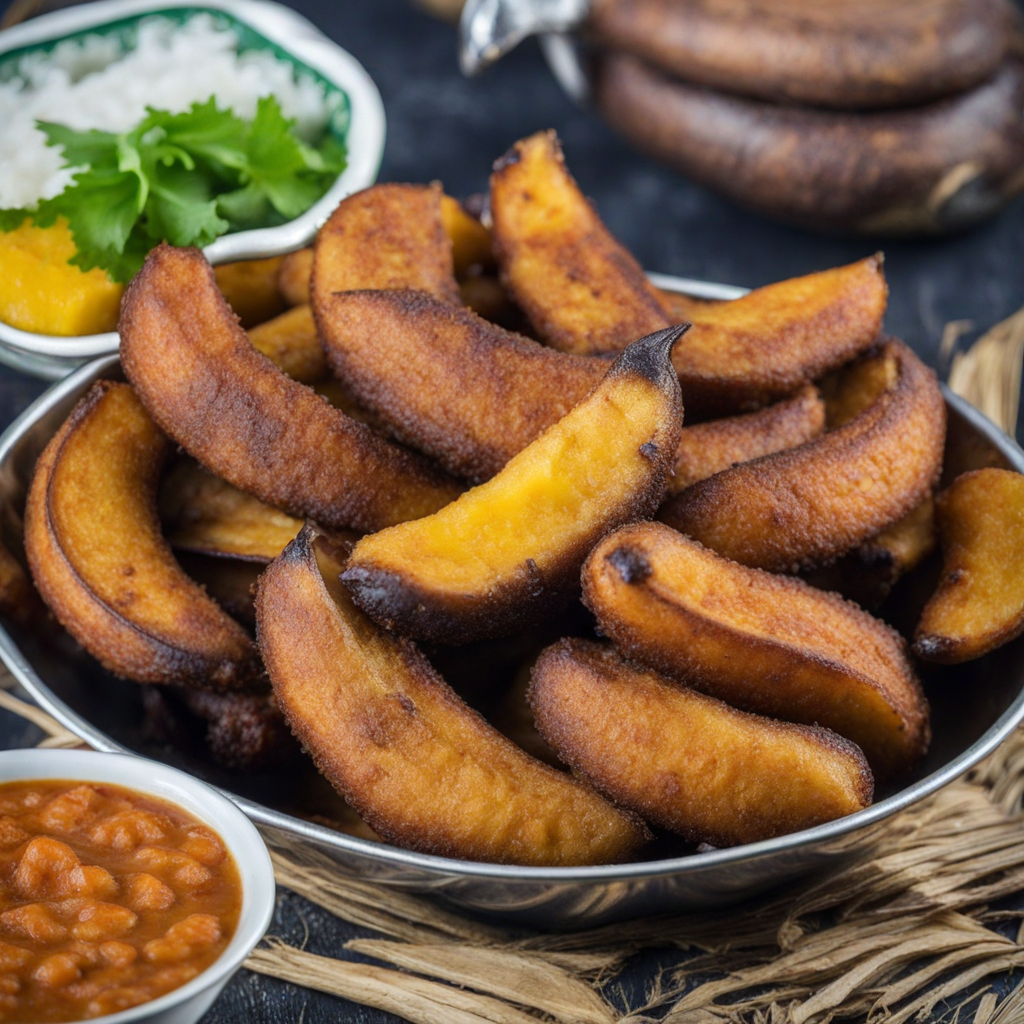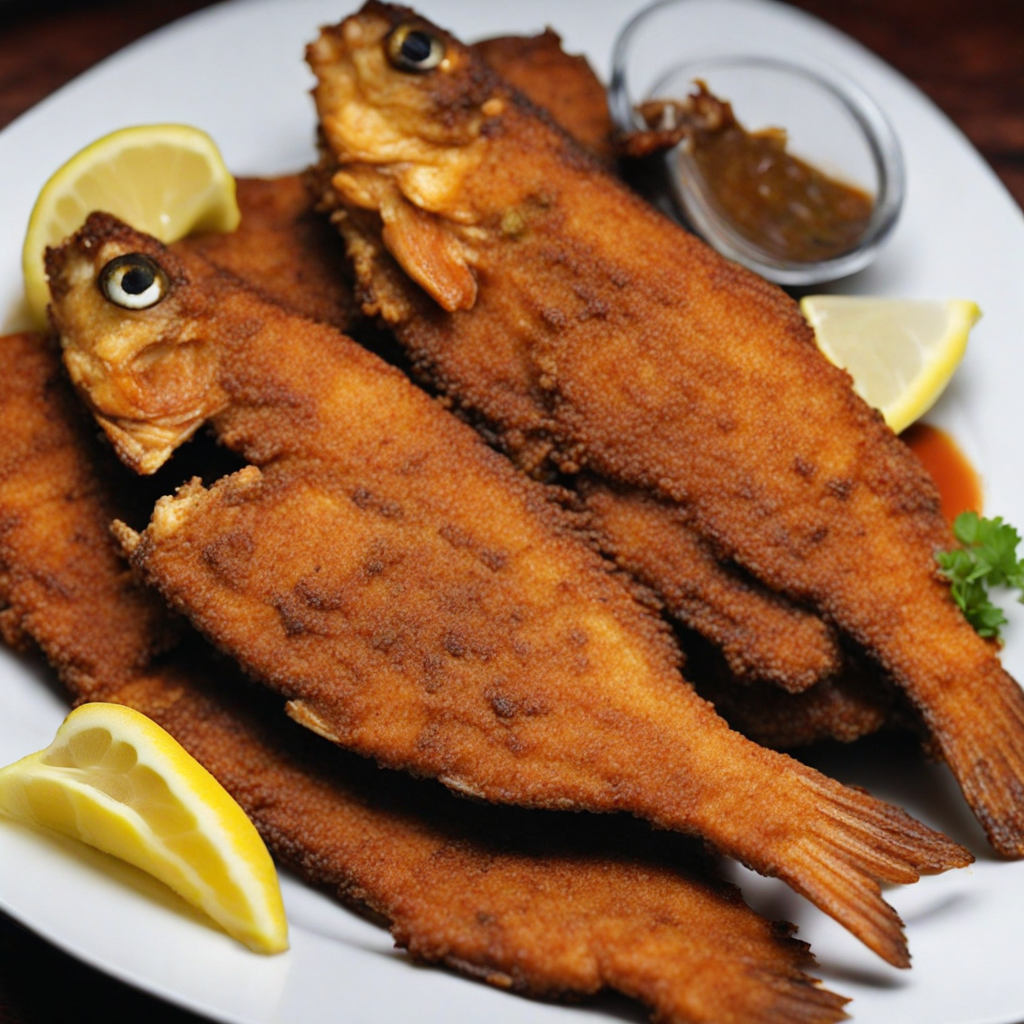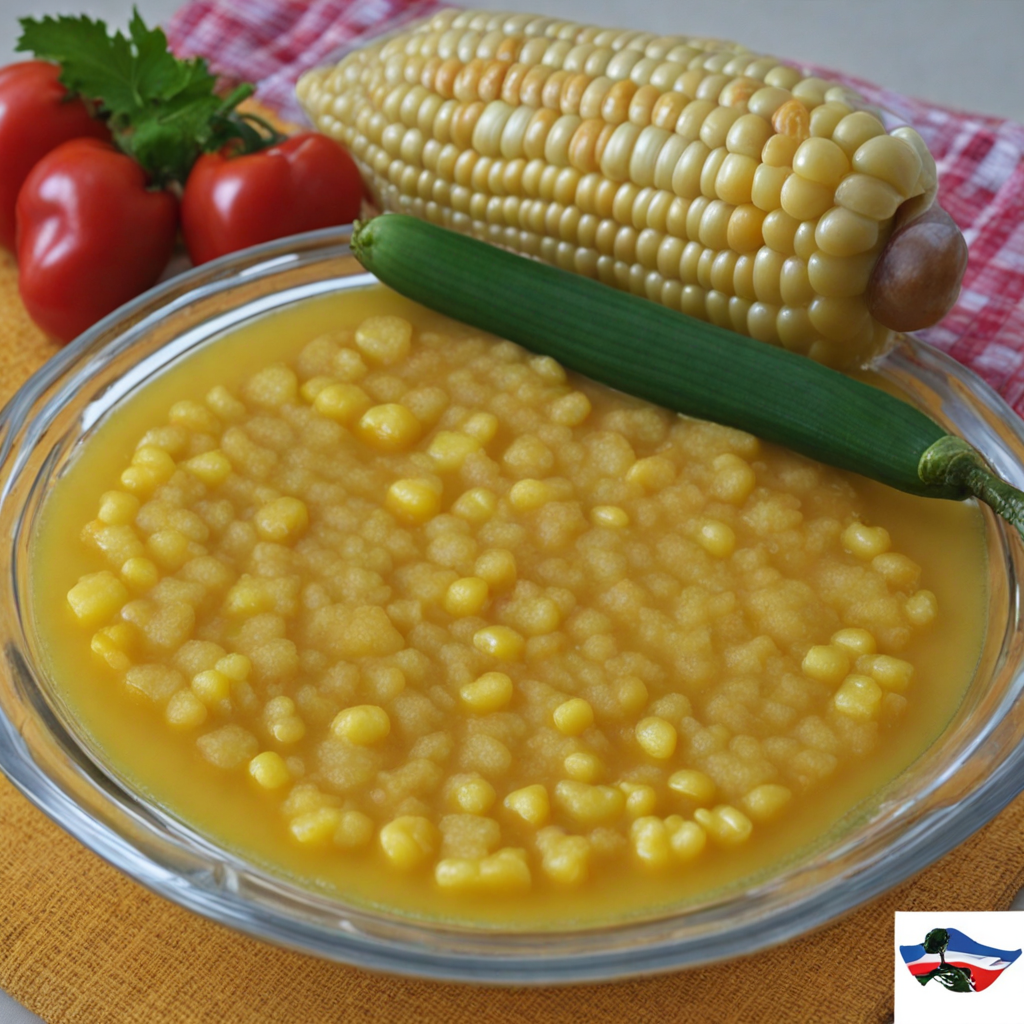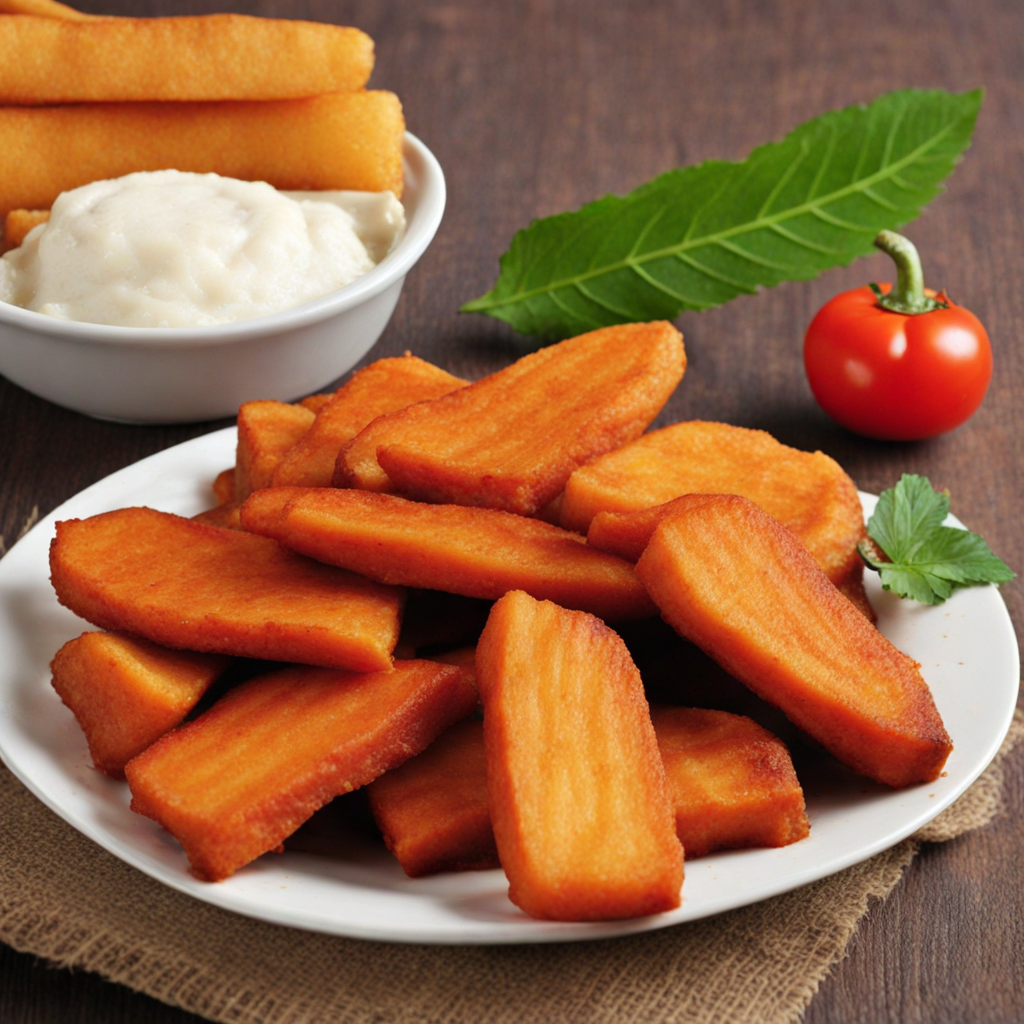Dodo
Dodo, a beloved dish from Nigeria, is essentially fried ripe plantains that have been sliced into thick pieces, resulting in a deliciously sweet and savory treat. The plantains are chosen at the peak of ripeness, where their golden-yellow skin is dotted with dark spots, indicating optimal sweetness. The preparation begins with peeling the plantains and cutting them into diagonal slices, which not only enhances their visual appeal but also allows for a delightful texture. Once sliced, they are submerged in hot oil until they achieve a perfect golden-brown color, creating a crispy exterior that contrasts beautifully with the soft, sweet interior. The flavor profile of Dodo is a harmonious blend of sweetness and slight caramelization, thanks to the frying process. Each bite bursts with a rich, buttery taste that lingers on the palate, making it a popular choice for both snack time and as a side dish to complement various Nigerian stews and rice dishes. Often served alongside spicy sauces or dips, Dodo elevates any meal with its inviting fragrance and enticing crunch. The balance of flavors and textures makes it a versatile culinary delight that can easily be enjoyed by all ages. In Nigerian culture, Dodo is more than just food; it represents warmth and hospitality, often being served at family gatherings and celebrations. Its simplicity and deliciousness have made it a staple in many households, transcending beyond just a dish to serve as a comfort food for many. For those looking to explore and embrace the vibrant flavors of Nigerian cuisine, Dodo is an essential starting point that showcases the country's rich agricultural heritage and culinary traditions.
How It Became This Dish
The Story of Dodo: A Nigerian Culinary Treasure #### Origin and Definition Dodo, a beloved Nigerian dish, consists of ripe plantains that are sliced and fried until golden brown. This simple yet flavorful preparation encapsulates the essence of West African cooking, where the interplay of local ingredients and techniques creates satisfying meals. The term "dodo" is derived from the Yoruba language, one of the major ethnic groups in Nigeria, where it is often enjoyed as a side dish or snack. Plantains, the key ingredient of dodo, have a long history in West Africa, believed to have been introduced from Southeast Asia via the Indian Ocean trade routes. These starchy bananas thrive in tropical climates and have become a staple in many West African diets. The cultivation of plantains is deeply rooted in Nigeria’s agricultural practices, reflecting the country’s rich biodiversity and the importance of local farming traditions. #### Cultural Significance Dodo holds a special place in Nigerian culture, serving not just as a delicious treat but also as a symbol of hospitality and community. It is commonly served at gatherings, celebrations, and festivals, embodying the spirit of sharing and togetherness. Whether it’s at a family reunion, a wedding reception, or a festive holiday feast, dodo is often present on the table, inviting everyone to partake. In Yoruba culture, food is more than just sustenance; it represents identity and heritage. Dodo is often paired with various traditional dishes, such as jollof rice, ofada rice, or stews made from tomatoes, peppers, and spices, creating a harmonious blend of flavors. Each meal featuring dodo is a culinary narrative that tells stories of family, tradition, and regional pride. #### Development Over Time The history of dodo is intertwined with the evolution of Nigerian cuisine, which reflects the country’s diverse ethnic groups and their culinary practices. In the pre-colonial era, various tribes developed their unique ways of preparing and consuming plantains, with frying emerging as a popular method due to the availability of palm oil, a key ingredient in many Nigerian dishes. As Nigeria colonized and interacted with different cultures, the preparation of dodo began to incorporate various influences. The introduction of new cooking techniques and ingredients, such as spices from the Portuguese and British, enriched the flavor profile of traditional dishes. The frying method became more refined, with the use of different oils and seasonings that enhanced the taste. In contemporary Nigeria, dodo has found its way into modern culinary practices, adapting to the tastes of younger generations while retaining its traditional roots. Street food vendors and high-end restaurants alike feature dodo on their menus, presenting it in innovative ways. Some variations include dodo garnished with local herbs, served alongside grilled meats, or even incorporated into contemporary fusion dishes. Additionally, the globalization of food culture has led to the popularity of dodo beyond Nigeria’s borders. Diaspora communities around the world have embraced this dish, showcasing it at cultural festivals and in home kitchens, further solidifying its status as a symbol of Nigerian identity. #### Nutritional Value and Culinary Techniques Dodo is not only cherished for its taste but also for its nutritional value. Ripe plantains are rich in carbohydrates, vitamins A and C, and dietary fiber. When fried, they offer a comforting crunch while retaining a soft, sweet interior. The choice of oil for frying can affect the healthiness of the dish; traditional palm oil provides additional nutrients and a distinct flavor, while vegetable oils are often used for a lighter option. The preparation of dodo is relatively straightforward, yet it requires some skill to achieve the perfect balance of texture and flavor. The plantains must be chosen at the right stage of ripeness—neither too green nor overly ripe. The frying process is equally crucial; plantains are typically fried at medium heat to ensure they cook evenly and develop a desirable golden hue without becoming overly greasy. #### Dodo in Modern Context As Nigerian cuisine gains international recognition, dodo has emerged as a culinary ambassador for the nation's rich gastronomic heritage. Food enthusiasts and chefs worldwide are experimenting with plantains, giving rise to a myriad of dishes inspired by the traditional dodo. From plantain chips to gourmet dodo sliders, the versatility of this ingredient has captured the imagination of food lovers. In recent years, there has been a growing movement towards sustainability and a return to traditional agricultural practices in Nigeria. This has led to a renewed appreciation for local ingredients, including plantains, with an emphasis on supporting local farmers and promoting organic farming. As more Nigerians embrace healthy eating habits, the preparation of dodo has also evolved, with variations that include baking or air-frying as healthier alternatives to deep-frying. #### Conclusion Dodo is more than just a dish; it is a culinary symbol of Nigeria’s rich cultural heritage, reflecting the country’s agricultural practices, communal values, and evolving culinary landscape. From its origins in traditional Yoruba kitchens to its modern interpretations on global plates, dodo continues to unite people through the love of food. As it stands at the intersection of tradition and innovation, dodo is poised to remain a staple in Nigerian cuisine, celebrated by generations to come. In the embrace of dodo, one finds not only a delicious treat but also a story that weaves together the flavors, histories, and communal ties of a vibrant culture, ensuring that this humble dish will continue to delight and nourish for years ahead.
You may like
Discover local flavors from Nigeria







